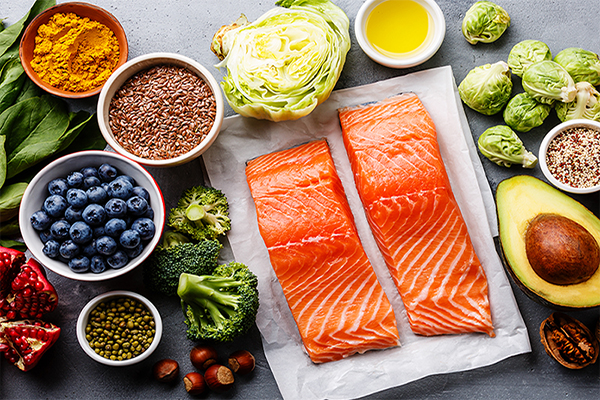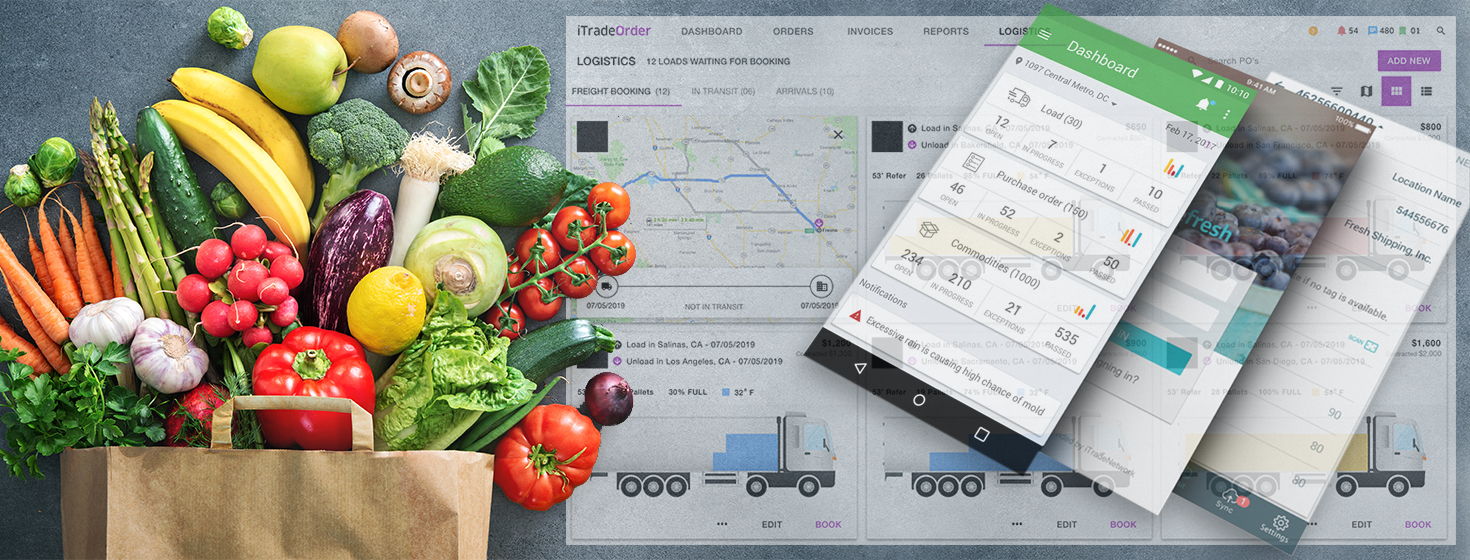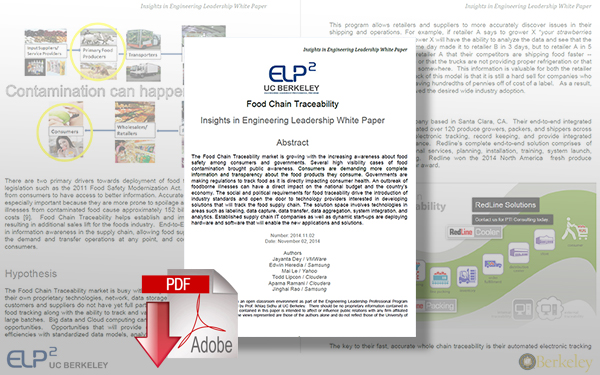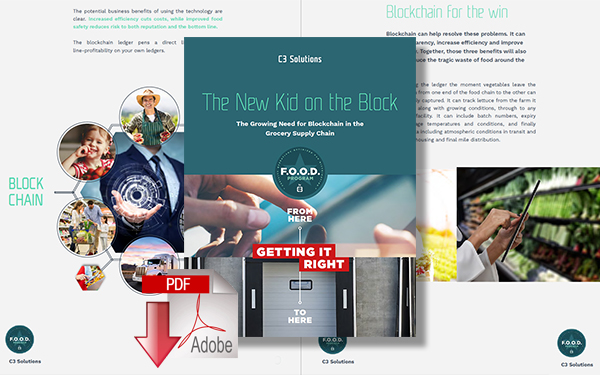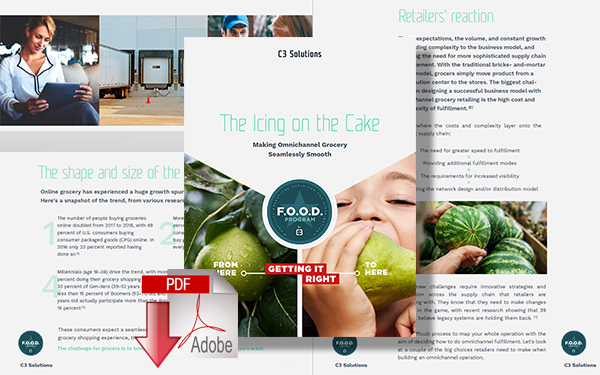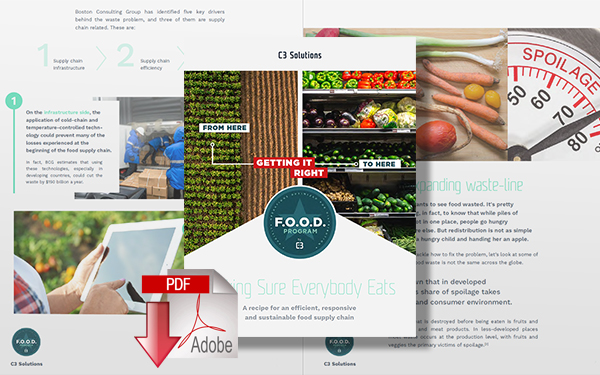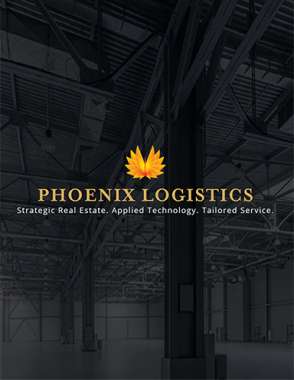Finding the Right Third-Party Logistics Provider to Store and Distribute Food & Beverage Products

With so much at stake, it’s critical to vet your potential food and beverage logistics providers to make sure they have the necessary capabilities for handling food and beverage products.
FOOD HANDLING AND DISTRIBUTION
Finding the right third-party logistics (3PL) company to manage your food supply chain can be an intimidating prospect.
Food handling and distribution takes a host of certifications, equipment, and facilities that not all logistics providers will have at the ready.
Risks in the food supply chain are high, and improper storage or handling of food can result in spoiled products, food waste, expensive recalls, and damage to your brand.
With so much at stake, it’s critical to vet your potential food logistics providers to make sure they have the necessary capabilities for handling food products.
When sifting through proposals, pay special consideration to the following crucial logistics and distribution areas:
TEMPERATURE CONTROLLED CAPABILITIES
A variety of food products must be refrigerated or frozen throughout their lifecycle. Even shelf-ready consumer goods - such as canned goods, potato chips, bottled drinks, etc. - will spoil early if stored improperly at high temperatures.
This can occur in warehouses and distribution centers without proper temperature control or in uncontrolled truck trailers, railcars, or cargo containers.
It’s critical that your logistics provider has the capability to handle your raw materials and finished products properly throughout each step of their journey, ensuring that they are stored and transported at appropriate temperatures that facilitate maximum product life.
CERTIFICATIONS/COMPLIANCE
Given the nature of the product, food-related activities must comply with a variety of regulations.
The Food and Drug Administration (FDA) and the United States Department of Agriculture (USDA) carefully regulate facilities that store and handle food, so it’s imperative that food shippers only use logistics partners that comply with the legal requirements put forth by these entities.
For food warehouses, regulatory compliance includes:
- Registration with the FDA, including a unique FDA facility identification number for each location that handles food products
- Passing FDA inspections every three years in compliance with the Food Safety Modernization Act
- An approved plan that identifies problems and solutions for any facility-specific issues that might compromise food safety
Any violation of these rules could be grounds for the FDA to order a product recall and shut down a facility. If this happens to your logistics partner, it could have a severe impact on your business.
To ensure that your 3PL won’t put you at risk, look for additional non-government certifications that speak to quality, such as the American Institute of Baking (AIB) certification for food warehouses and distribution centers, or Good Manufacturing Practices (GMP) food-grade warehouse certification.
In addition, ask your provider about the following:
- Pest control procedures
- Expiration date monitoring and lot/batch control
- Quality control measures
- Product segregation/anti-contamination measures
- Employee background checks
DISTRIBUTION LOCATIONS
All food products are perishable to some degree, so it’s important to contract with a logistics provider that can reach your target markets.
For highly perishable items such as fruits and vegetables, for example, the location of the distribution center can be critical. While many fruits and vegetables can last for months under highly controlled storage conditions, they begin to ripen as soon as they are removed from these conditions for transport to their final destination.
As such, it’s very important that your 3PL operates in your target market or can acquire and certify a food-grade facility for use in an appropriate location.
Grocery e-commerce providers are monopolizing much of the existing capacity, so you may need a logistics provider that can develop creative solutions for reaching congested markets.
IS YOUR FOOD IS SAFE?
A good example of logistics food and beverage distribution is Phoenix Logistics.
Phoenix Logistics regularly handles products for a variety of food-related industries, including:
- Food & Beverage
- Agribusiness
- Ingredients & Intermediate Products
- Consumer Packaged Goods (CPG)
- Packaging materials
If Phoenix Logistics doesn’t have a warehouse or distribution center near your target U.S. market, they will find one and get it certified. Their national network of technology-enabled, AIB-certified, GMP food-grade warehouses offers an ideal solution for the safe handling of food products of all kinds. In addition, their carefully vetted network of transportation partners can safely bring finished food products to their point of sale.
Related Article: Disrupting the Perishable Supply Chain Freight Industry
Related White Paper
Food Chain Traceability: Insights in Engineering Leadership
This paper was created in an open classroom environment as part of the Engineering Leadership Professional Program developed and led by Prof. Ikhlaq Sidhu at UC Berkeley, it discusses opportunities that provide end-to-end food chain visibility, improving efficiencies with standardized data models, analytics software, and visualization tools. Download Now!
The Growing Need for Blockchain in the Grocery Supply Chain
With increased accountability comes the need for streamlined operational management, this 'paper' discusses the powerful and effective solutions that blockchain can provide. Download Now!
Making Omnichannel Grocery Seamlessly Smooth
While a number of factors are creating a serious competitive challenge for grocery retailers, this 'paper' suggests solutions to help grocers get it right! Download Now!
A Recipe for an Efficient, Responsive and Sustainable Food Supply Chain
In this paper, we discuss the scope of the food waste problem, where it's happening, and how you can help solve the problem; while at the same time maximizing your operations to take advantage of current food industry trends. Download Now!
More Resources on Cold Chain
Article Topics
Phoenix Logistics News & Resources
4 Best Practices for Online Order Fulfillment In 2023 Is Industrial Real Estate Recession-Proof? 9 Tips for Offsetting Rising Parcel Rates Tips for Retaining Your Peak Season Temp Labor The Great Decoupling and What It Means for Industrial Real Estate How Does the Inflation Reduction Act Impact Industrial Real Estate? Not in My Backyard: Warehouse Edition More Phoenix LogisticsLatest in Transportation
City of Baltimore Files Lawsuit to Recoup Money for Collapsed Bridge The Era of Self-Driving Tractor-Trailers Set to Begin Is the Trailers as a Service (TaaS) Model Right For Your Business? Why Grocery Shoppers are Leaving Stores to Buy Their Food Online Unlocking Efficiency: Navigating Sea Freight Logistics in Supply Chain Management Is There a Next Generation of Truckers? Data Reveals Grim Outlook A Look at Baltimore’s Key Bridge Collapse—One Month Later More Transportation